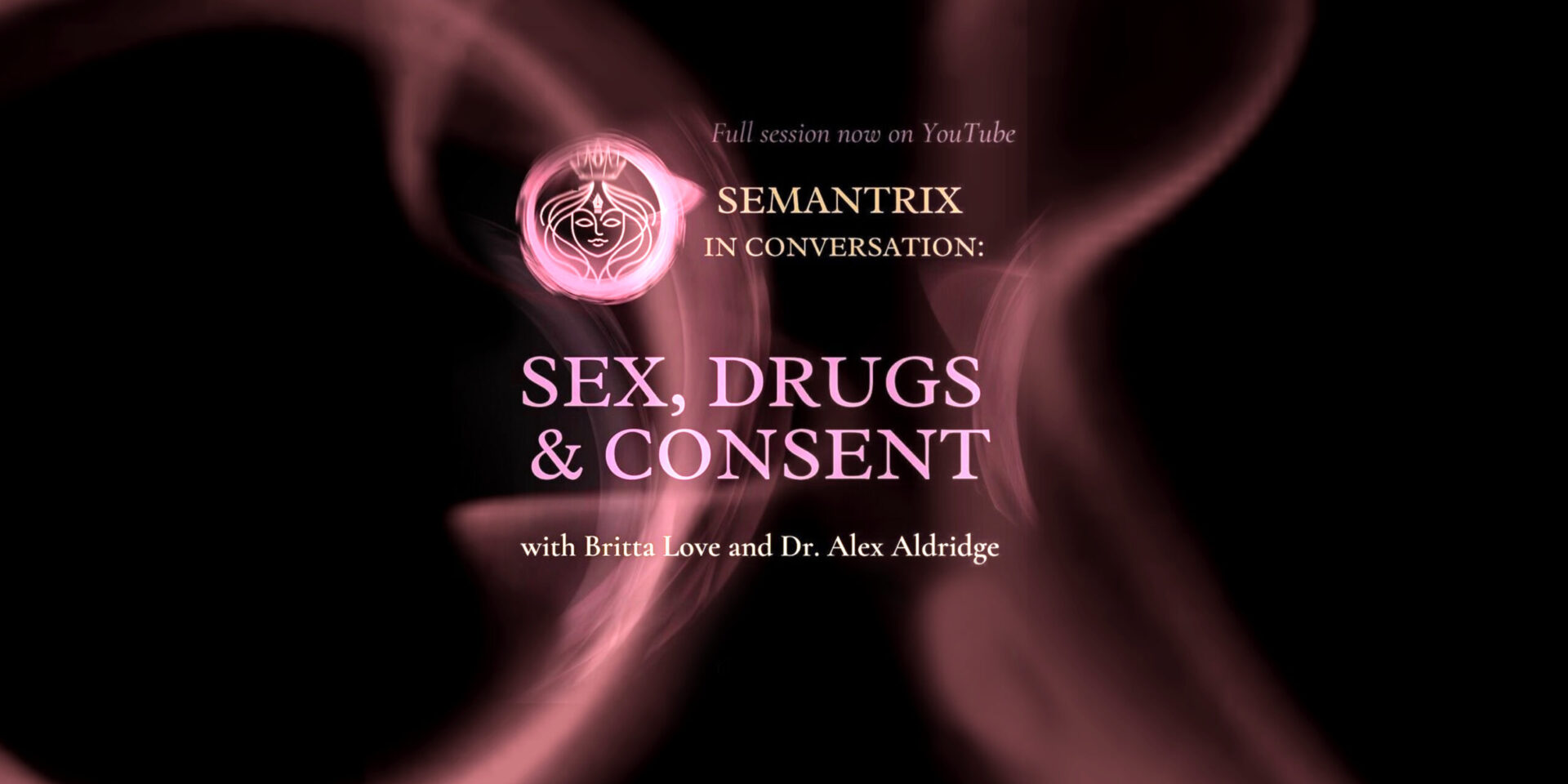I so enjoyed this little dive into Sex, Drugs and Consent with the Semantrix Sessions and Alex Aldridge. Alex does amazing work in London researching people’s sex on drugs experiences as well as implementing safer practices in nightlife spaces. It was great to cross-pollenate between the worlds of what we do in somatic sex education or in the container of a consent workshop – and how these things play out in complex ways outside of these containers. How can these models and understandings be translated in the context of a nightclub dark room/play space? Curious what others think.
Here’s the recording on Youtube
A few things that I didn’t get to mention in the conversation that I want to add here:
1. Somatic sex education is about finding choice and voice: we cannot assume that anyone has easy access to those.
2. Whenever I speak about complicating the perpetrator/victim dichotomy these days, I also want to name the phenomena of folks hiding behind restorative/transformative justice language to evade accountability or maintain power. The natural consequence of having misused said power should be having less access to it while one is in the space of learning and repair, and possibly beyond that – not because one is a bad person, but because if one is deeply, actually ready to be accountable (rather than just wanting to bypass the harm), it will seem the right thing to do. The goal cannot be to simply maintain/reclaim the power one previously held.
3. I also noticed my language twice referenced AFAB folks being socialized more often into patterns of submission – this was a poor choice of words I’ve noticed myself making when quickly trying to find non-traditional/less binary language around gender socialization, that actually is still problematic. I think “feminized people” and/or “people raised female” would have better captured what I meant to say. Always open to suggestions on how to better language these things!
4. I shared a little about an early sexual experience that it took me a long time to categorize as a consent violation/assault. I realized the way I shared the story might leave one to believe that there were no signal or communication given to the person harming me or that since it took me so long to realize, it couldn’t have caused me real harm. Neither of these things were true. These things get so tricky: attempting to complexify narratives around consent always leaves room for our cultural shadow to come in and attempt to bypass harm as our culture is so wont to do. Rather what I hoped to demonstrate through sharing that story is why it can sometimes take survivors a long time to process or share about a traumatic event. It took me over a decade to see clearly the connection between that experience and many mental health and life struggles that directly followed – so just because it took time to recognize the harm, that doesn’t mean it wasn’t negatively impactful at the time.


